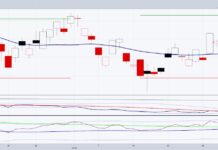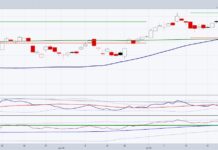The following article emphasizes that the perceived economic prosperity of recent decades is largely the result of political expediency.
Those in charge of monetary policy have repetitively failed to act in the best interests of the public in an effort to either avoid criticism or preserve their individual status. While often ignored, this dynamic is crucial to understand to form longer term expectations for asset prices.
“I’m making records, my fans they can’t wait
They write me letters, tell me I’m great” – Joe Walsh
The modern day printing of digital dollars from thin air, literally from nothing, brings to mind a Latin phrase “ex nihilo, nihil fit” which means out of nothing, nothing comes.
If that statement is true, and a moment of reflection surely produces the logical conclusion that it is true, then what do central bankers hope to accomplish by means of conjuring currency from, well, nothing? What does it further say about setting interest rates at less than nothing? If nothing can come from nothing then there is no solution in the idea that by printing dollars and inflating asset prices you can create something (a durable organic recovery). Although the net result for the economy will be nothing, the net result of those actions for individuals appears to be a redistribution of wealth in the economy.
In the end, it becomes clear that the purpose of and reason for the exercise is not the good of the general public but rather advocacy of large financial institutions, political expediency and hubris. If that were not the case, then why would the Federal Reserve need to hire a veteran lobbyist (former Enron and Clinton administration employee) in navigating the use of their powers in the months following the financial crisis?
Hilltop Houses and Fifteen Cars
There is something god-like in the idea of creating something out of nothing – especially money – which fits with the progression of status among Federal Reserve (Fed) members. The idea that their stature and judgement is beyond reproach has been in play for some time.
Alan Greenspan: The absurd notion of central bankers as rock stars was popularized by Alan Greenspan. He achieved celebrity status by advancing in ways never before seen, the interventionism of the Federal Reserve. Some of his handiwork includes engineering a rapid recovery of the stock market following the Black Monday crash in 1987, the notoriety of uttering the term “irrational exuberance” in 1996, the front man on the cover of Time magazine as a member of “The Committee to Save the World”, having his name on a key market term – The Greenspan Put, and of course having a book published about him by the iconic Washington Post reporter and author Bob Woodward well before his tenure as Fed chief ended. These are things now to which every Fed Chairman aspires – indeed, to which every central banker aspires.
Ben Bernanke: So desperate to follow suit after he stepped down as Fed Chairman in 2014, he could not wait for someone to write his story so he penned his own in the self-aggrandizing “Courage to Act”. In addition to well-paid fees for public appearances, his desperation for notoriety also extends to consulting for some of the most powerful hedge funds as well as blogging his perspectives from time-to-time. The legacy he is desperately trying to shape seems similar to the gilded stature Greenspan crafted for himself.
Janet Yellen: In her time as the Chairman, Yellen was the beneficiary of much good fortune and did nothing to make waves (or right the ship). As the New York Times reports, given her tenure presiding over a “plummeting unemployment rate and consistently low inflation, Ms. Yellen became a pop culture phenomenon.” Such hyperbole used to lobby for Janet Yellen’s rock star status is derisory. The health of the organic economy is contrived by the over-use of debt. The disparity between the rich and poor has never been wider as Yellen assisted in hollowing out the middle class by adhering to a “saver-punishing” low-rate policy. Trickle down policy of boosting asset prices is surely benefitting the wealthy but to the detriment of society. By myopically targeting traditional measures of inflation, she took latitude to continue crisis policies to print money and is complicit in the on-going accumulation of debt. The likelihood is that the failure to normalize monetary policy years ago has sown the seeds of the next crisis. Like Bernanke, how her role is cemented in history as one of those who are “great” among central bankers too will be determined by time and economic outcome.
Jerome Powell: Will the latest chairman of the Fed, Jerome Powell, have the courage to act? Vilified in the late 1970’s and early 1980’s for raising interest rates and temporarily choking off economic activity, Fed Chairman Paul Volcker had the character to sacrifice his own popularity and accept the short-term consequences in exchange for dramatic long-term economic benefits. He did it because arresting inflation was in the best interest of the country. Mr. Powell has a choice to make. He can do what’s best for the country or he too can aim to become a “pop culture phenomenon” and keep the charade going but he cannot do both. Time will tell.
…Before the Fall
The modern day desire for individual notoriety and legacy among central bankers belies the purpose of the role they play in shaping the business cycle. Their influence on the trajectory of the economy should be so subtle as to scarcely be perceived. As was the case with McCabe, Martin and Burns, few should recognize their names. The incongruence of this passion among the power-elite who manage the printing presses of the world’s largest economies is akin to the contrast between pride and humility. Anyone who thinks themselves qualified to manage the monetary policy of the complex system of a major economy lacks requisite humility and is too deceived by pride to be thus qualified. A proud man is always looking down on things and people and, of course, as long as you are looking down, you cannot see that which is larger – the best interests of people or democracy or free-enterprise – which resides above you.
Twitter: @michaellebowitz
Any opinions expressed herein are solely those of the author, and do not in any way represent the views or opinions of any other person or entity.








